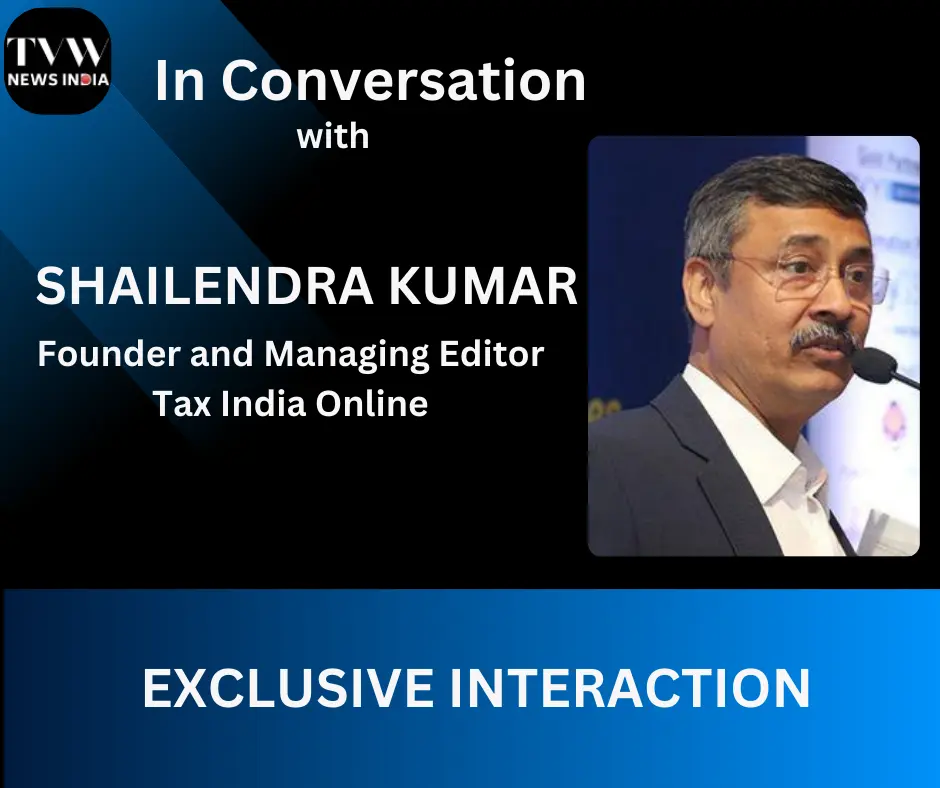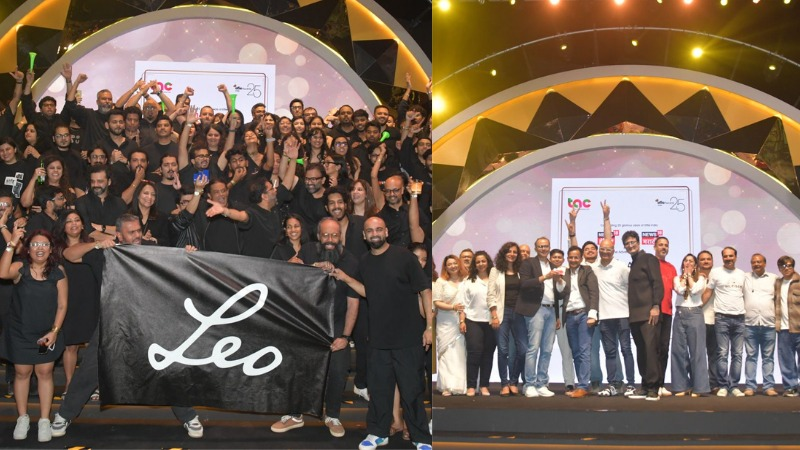In an exclusive interaction with Shiva Y from TVW News India, Shailendra Kumar, the Founder and Managing Editor of Tax India Online, shares his insights on the critical intersection of tax policies and environmental sustainability. He delves into how fiscal tools can effectively drive individuals and businesses towards greener practices, offering tangible solutions for integrating tax incentives with environmental initiatives. He also provides a comprehensive assessment of India’s current tax landscape, highlighting areas in need of reform, and discusses the challenges and opportunities for tax administration in the context of evolving global trade dynamics and technological advancements.
How can tax policies be effectively integrated with environmental initiatives to promote sustainable practices among individuals and businesses?
Fiscal tools are proven instrument worldwide to morph individual or household behaviour or even business entities towards sustainable practices. Though zero-carbon is a lofty and desirable goal for all entities on the earth but adopting environment-friendly business practices or consumption warrants painful shift from the deep-rooted habits. Against this backdrop, tax incentives can be designed for both the demand and the supply sides. Either a tax exemption package or direct benefit transfer can be designed by the government to promote adotpion of green habits among consumers. One good example is the scheme for purchase of Electric Vehicle or roof-top solar modules. But the catch here is – Such incentives should be attractive enough for the consumers to change their consumption habits. There are global studies which indicate that if tax reliefs are not substantial, greening scheme tends to fail.
Similarly, fiscal benefits can be integrated to promote green cause by incentivising corporate entities or even smaller businesses which look after the supply side in the market. Reduction of carbon footprint needs to be promoted. Switching from carbon-intensive sources of energy to green energy should be rewarded. Sourcing of environment-friendly raw materials or less carbon-intensive inputs should be incentivised. Businesses need to be encouraged to shift from their cost-efficient but carbon-intensive business practices to more sustainable business practices for a happy and sustainable life on this planet. All stakeholders need to remember that the Nature has gifited the human race just one planet – there is no Planet B
As the founder of Tax India Online, how do you assess the current state of Indian tax policies? What are the key areas that need reform to improve compliance and efficiency?
Indian tax policies are progressive and welfare-oriented. Taxes are essentially contributions to the society we aspire to live in. However, India’s tax-to-GDP ratio of barely 18% is significantly lower than that of peer countries, including those in East Asia.
Compliance remains a significant challenge, leading to a heavier reliance on indirect taxation. While indirect taxes are easier to collect, they are regressive, as the burden falls equally on the rich and poor. A more progressive tax system would rely heavily on income tax. Therefore, simplifying the tax system and making it less burdensome is crucial. Regular taxpayer education is also essential to foster a sense of ownership in the tax system. Predictability and certainty are key to improving compliance. Frequent tax changes create complexity and deter taxpayers.
• TIOL has been a media watchdog for Indian tax and trade policies. Can you share some significant impacts your organization has made in terms of policy changes or public awareness?
For the past 24 years, TIOL has, actively and unbiasedly, been playing the role of a watchful media entitity in the domain of taxation, international trade and economic policies of all genre. Like any other media entity, we have been sensitising all stakeholders in the taxation domain about what is fair and justiceable to do in larger public interest. We have been critically analysing each policy decisions and fear none to point out chinks in them and, full credit goes to the governments for not only paying attention to them but also taking swift corrective decisions. Besides, our team of domain experts has been contributing researched inputs for futuristic tax policies tailored by the governments. We lay equal amount of emphasis on educating taxpayers and reminding them to do what is fair, legal and right for them to do. To perform its duty of tax education, TIOL has set up a Knowledge Foundation which annually organises Global Tax Congress to deliberate on fiendish tax issues and recommendations made by experts are compiled to share with all key decisions makers at the Centre as well as States. TIOL also organises annual Award event to motive taxpayers to compete for the trophies which are given only to ‘Model Taxpayers’ in the society.
In light of the current global trade dynamics, including the shifts due to the COVID-19 pandemic, how do you see India’s position in international trade evolving?
Post-COVID global trade has been experiencing a seismic change owing to tectonic shift in the geopolitical order. With the US economy rapidly getting decoupled with the Chinese economy, the major coordinates of geo-economics have been severely walloped. With the world getting splintered into two tents, the global trade is visibly impacted by the slogans like China plus one and de-risking of global supply chain. Though India has been sustaining its trade relations with China despite tensions on its borders but the geopolitcal rivalry is likely to adversely impact Indian trade in the long-run. With most large economies switching to protectionism and bilateral FTAs in place of multiplateral treaties hammered out by bodies like the WTO, Indian trade would suffer like other economies. However, India’s neutral foreign policy may help spur its exports to most geographical regions but climate change has emerged as a major bump as it has nudged the EU to unilaterally impose carbon tax on imports from 2026. There are chances that such a tax may trigger similar bouts of taxes by other countries and such isolated measures may harm India’s exports interests.
What are the biggest challenges currently facing tax administration in India, and what solutions do you propose to overcome them?
Sacré bleu! One of the most tactile changes in the Indian taxation landscape has been the tax administration facet. With the penetration of modern tech tools and now blockchain and AI deepening for collection of taxes, the face of tax administration has got completely overhauled for better. Greater adoption of new age technology coupled with training of the officers would help in a big way. But what is of more pivotal nature is – e-procedures need to keep pace with the tech-driven changes in the tax system. For instance, the income tax department has turned faceless but both the officers as well as taxpayers battle many teething problem arising out of such technological change as many procedures are yet to be upgraded and re-designed. Along with the assessment, the search and seizure cases are also required to become more transparent. Phyical verification, in case of GST, needs to be kept at minimum as interface results in undesirable opportunites for stakehodlers.
In the context of recent discussions about environmental sustainability, what are some innovative tax reforms that could simultaneously promote economic growth and environmental protection?
India has indeed taken several measures to incentivise greening of the economy. Many green-promoting goods have been granted either exemption or lower import duty. Similarly, a special treatment has been given to carbon-reducing goods under the GST. But, yup, more innovative schemes are required. For instance, government provides subsidies and tax sops in case of electric mobility. But, it would be more desirable if key areas of the economy are identified and incentivised with a time-frame to switch to green methods of production or even rendering of services.
Looking ahead, what do you see as the future of taxation in India, particularly in terms of aligning with global standards and practices?
Indian tax system is going to be very competitive in terms of tax rates and much simpler in terms of compliance. Given the announcement of the Finance Minister in the Union Budget 2024 to set up a Task Force to draft a new Income Tax Act, I sincerely hope that it is going to be salubriously decluttered act with simpler procedures and only digital filing, assessment, audit and recovery of dues. I do see a future where the interface between the taxman and the taxpayer would be minimal. Secondly, our system is going to be predominantly led by machines and other tech tools.
Note: We are also on WhatsApp, LinkedIn, and YouTube, to get the latest news updates, Join our Channels. WhatsApp– Click here, and for LinkedIn– Click Here












